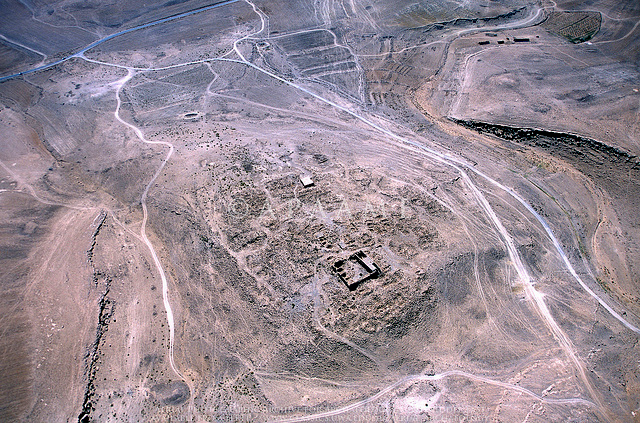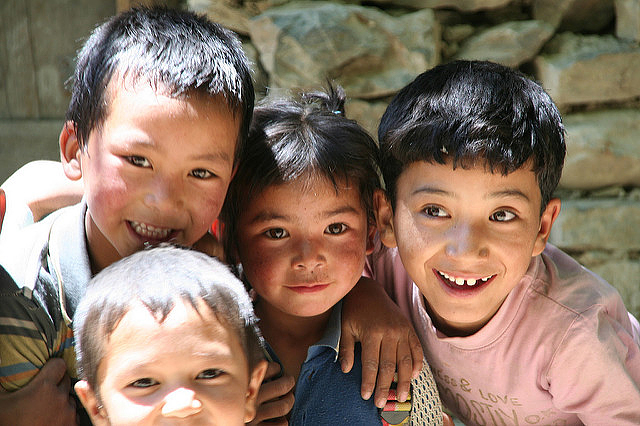Tsewang Dorjey, a 43-year old police officer, has taken a special interest in the young children of Shara, a small community in rural Ladakh, so he founded a nursery school for them. A news story by Shreya Pareek in The Better India last week reported on the ways Officer Dorjey is developing his school.

Shara is located in the Leh District of Ladakh, about 30 miles southeast of the city of Leh in a remote mountain valley. According to the 2011 Census of India figures, the village had 57 households with 290 inhabitants, almost 54 percent of whom were females. There were, that year, 26 children under 6 years of age.
When the policeman, a sub-inspector with the Jammu and Kashmir police force, observed that little kids were not attending school due to the harsh climate or long distances, he decided to start a nursery school for them. He called it the Social and Educational Welfare Association (SEWA), Shara Nursery School. Its mission: to prepare children for the mainstream schools.
Officer Dorjey, a native of Shara, graduated in Jammu with a degree in science but he returned to his village to take a position as Rural Development Officer with a local NGO. After five years, he got a job with the state police force but he kept worrying about the poor facilities for children in the community. “I feel education is a very important part of one’s life and everyone should have access to it in spite of their location,” he said.

He started the school in 2007 with his own savings and decided to teach such basic subjects as English, Hindi, and mathematics. The school now employs three teachers and charges nominal fees to help cover expenses. Dorjey relies on donations from his own friends and family members but the school is suffering from a lack of resources. Mr. Dorjey has also been earning money for the school by renting out his tractor, which he used to use for farming.
Kids in the village who used to wait until they were age seven to go to school can now start attending as soon as they turn three. Tsewang Dorjey plans to expand the school to include instruction up to the sixth standard, and he also wants to reach out to other communities in the Leh District of Ladakh with his model of early childhood education. In addition, he hopes to improve the small playground at the school. He is clearly trying to make a difference in his village.